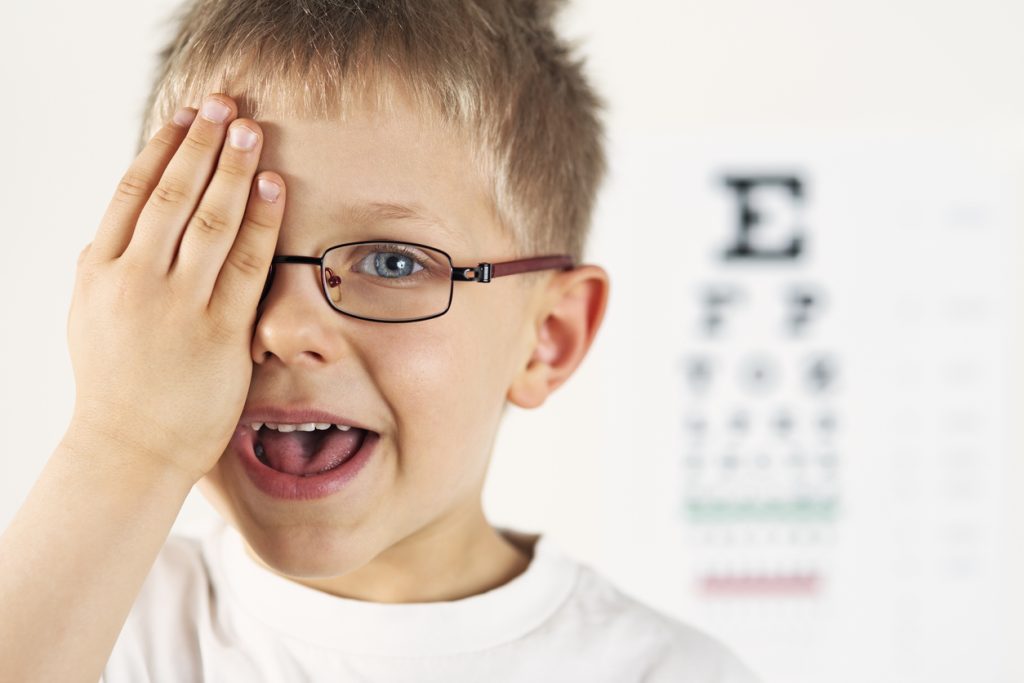5 Signs Your Child Needs Glasses

Childhood vision problems can make their presence known in less-than-obvious ways. The signs that your child needs glasses aren’t always as clear-cut as seeing a child squint or hearing them talk about blurry vision. If vision problems are left undiagnosed or untreated, they can have lasting effects on a child’s eye health, schooling, and confidence engaging in normal activities. Here are five signs your child may need glasses.
5 Signs that Maybe Your Child Needs Glasses
Closing one eye during activities like reading or watching TV…
If your child frequently closes one eye during activities like reading or watching television, this could indicate something known as a refractive or binocular vision problem. Basically, this is a problem that affects the ability of their two eyes to work together properly as a team. Your child closes one eye in order to be able to focus better. If you see them engaging in this behaviour, it could be worth a trip to the optometrist to get their vision checked.
Avoiding activities that require either near vision or distance vision..
Another sign that maybe your child needs glasses is if they avoid activities that require them to use near vision, such as reading, homework, or computer use. Alternatively, your child may avoid activities that require them to use distance vision, such as sports or other recreational activities. Your child will avoid these activities because it is difficult for them to do them. Keep an eye on your child to see if they’re favouring activities that require only one type of vision distance.
Sensitivity to light…
Going from a dark environment to a bright space can cause momentarily sensitivity for anyone – even those with perfect 20/20 vision. But for a child that needs glasses, extra sensitivity when it comes to light can be a sign they need glasses. Your child’s sensitivity to sunlight, indoor lighting, or even camera flashes could indicate a condition called photophobia. Photophobia can also lead to headaches or nausea.
Using their finger to guide their eyes along the page while reading…
When children learn to read, they’ll often use their finger to keep track of which word they’re on and to help sound out words. As time goes on and they become more proficient readers, they should become less reliant on using a finger to track. Instead, they should be able to focus on the words without losing their place. If your child is still using their finger to track while reading beyond a typical age, or has trouble reading aloud without pointing, it could indicate a vision problem.
Tilting their head to see better…
It might look like they’re just being cute or curious, but regularly tilting their head is a sign your child may have an eye problem. Those with a condition called strabismus – a muscle imbalance that prevents the eyes from moving in alignment – often tilt their head in order to see better, as the condition causes double vision, and head tilting helps minimize the issue.
What if My Child Needs Glasses and We Don’t Know
Undetected and untreated, vision problems can lead to certain visual skills not developing or developing poorly, making learning difficult and stressful. A child may not be able to tell you that they have a vision problem because they may think the way they see is the way everyone sees. If you notice any of the signs above, or other issues such as frequent blinking or eye rubbing, squinting, wandering eyes, or even slipping grades, an eye exam may be warranted. All children should have a comprehensive eye exam prior to starting kindergarten, and every one to two years thereafter.











